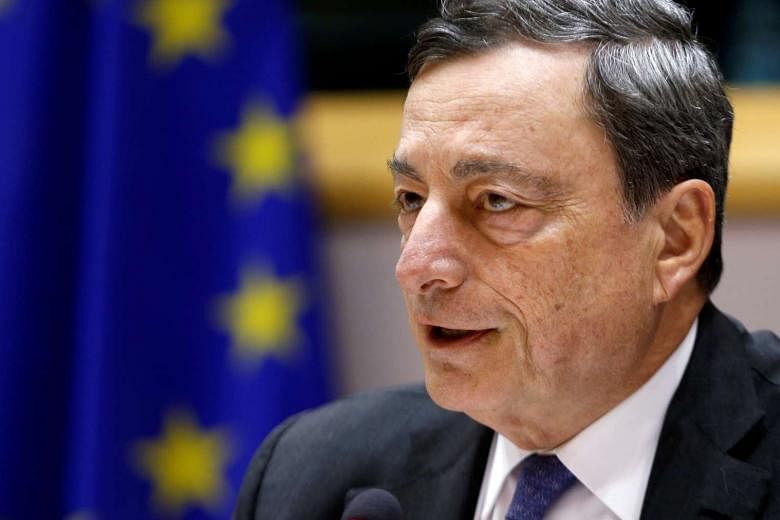SINTRA, Portugal (REUTERS) - Central banks around the world should align their monetary policies to help prevent "destabilising spillovers" between economies growing at different paces, European Central Bank President Mario Draghi said on Tuesday.
Mr Draghi did not make any reference to Britain's vote to leave the European Union last week, which has rocked global markets and put a question mark over the future on the EU.
Instead, he focused on the adverse effects of diverging monetary policies among different countries, citing large fluctuations in exchange rates and swings in the flow of capital, particularly in emerging economies. "Monetary policy has inevitably created destabilising spillovers as well, especially when business cycles have been less aligned," Mr Draghi said at an ECB forum in Sintra, Portugal.
Emerging economies have experienced several bouts of currency and capital flow volatility over the past three years as the availability of dollars, a key component of global liquidity conditions, tightened along with the Federal Reserve's monetary policy.
This has revived calls for global monetary policy coordination - a prospect that central bankers tend to refuse because it would undermine their independence. "We may not need formal coordination of policies. But we can benefit from alignment of policies," Mr Draghi said. "What I mean by alignment is a shared diagnosis of the root causes of the challenges that affect us all; and a shared commitment to found our domestic policies on that diagnosis."
He also called for alignment among other areas of economic policy, saying the implementation of a pledge by the world's 20 largest economies to boost global growth had been"disappointing". "The disappointing outcome of the G-20 commitment to raise global growth by 2 percent with structural measures is one example of how intentions and actions can diverge," Mr Draghi said. "Such fora of course cannot bind countries into specific actions. But mutual recognition of their common interest can act as a form of coordination device."
Last week's Brexit vote was likely to further dampen global growth and create huge political uncertainty, the International Monetary Fund (IMF)'s Deputy Managing Director Zhu Min warned on Tuesday.
Analysts at US investment bank Goldman Sachs said Britain was likely to enter a recession within the year as a result of last week's vote, which will also have a knock-on effect on the rest of Europe and the United States.

